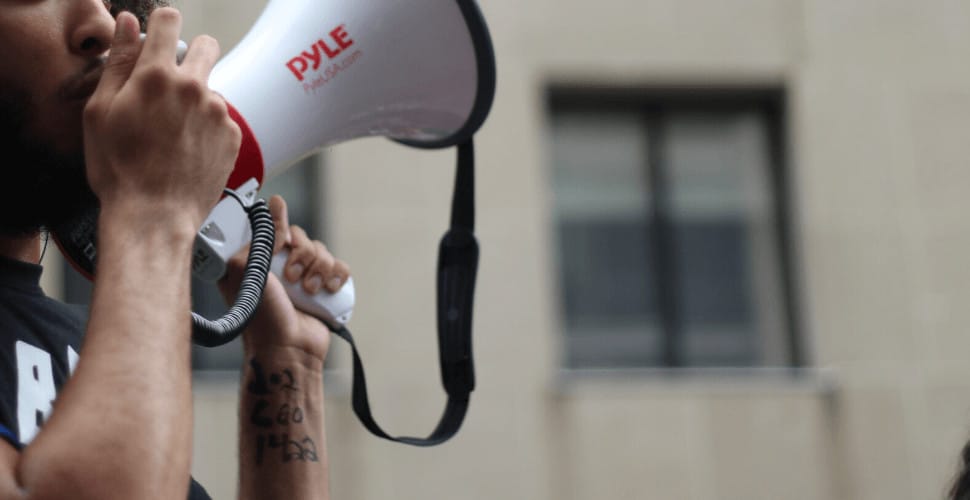In the anti-trafficking sector, a high value is often placed on survivors’ stories and first-hand accounts of trafficking and modern slavery. Yet some stories are more valued than others. In a space where there are many people with lived experience of trafficking but few platforms, often only those that are able to tell stories in a manner that can move audiences, attract funding and raise awareness are selected.
This has led to people with lived experience being put under pressure to divulge the most traumatic elements of a trafficking experience in order to shock people into paying attention to human trafficking. Or, if their experiences don’t match organizations’ priorities, they may sidelined altogether.
We know that sensationalist and disempowering depictions of modern slavery are ineffective at best and harmful at worst. The anti-modern slavery movement must create the space for leadership from lived experience in order to identify effective, lasting solutions. But what does meaningful survivor engagement look like and is the anti-trafficking sector moving from rhetoric to practice?
Raising awareness at what cost?
Though some organizations take the position that sensational stories play a vital role in creating awareness and evoking strong emotions, this isn’t always channeled productively to effect the kind of systemic change required to build resilience to human trafficking.
A simplistic victim versus trafficker narrative can pique interest while ignoring the the harm caused by hostile immigration policies and poor labor rights. This then translates into developing ineffective and even harmful anti-trafficking measures with a narrow focus on criminalization and carceral responses rather than more holistic strategies.
The way that human trafficking is framed through statistics, for example depicting a vast majority of victims as women and girls, further sensationalizes the issue by obscuring the reality of human trafficking.
People’s experiences misused
People with lived experience who choose to share their experiences may not always have full control over how their stories are used. In some cases, survivors may find themselves in a bind, unable to control how their experience is ultimately presented and shared, even directed on what to say and how to say it.
Once a person’s story is made public, they have no control over the response. Rose Kalemba explains on her personal blog what happened after she shared her experiences:
Part of my childhood trafficking experience was global front page news in over 40 languages, which I consented to with a reporter who was ethical & compassionate, but the backlash from abusive people who read about my story was & still is severe. I’ve been very lucky to have gotten significantly more support & compassion than hate, but the hate- although a tiny minority in comparison- has been brutal & life-altering & dangerous for me & my loved ones.
Kalemba goes on to explain how anti-trafficking organizations have even exploited survivors for their stories, using them to validate harmful positions:
“You don’t cause harm in the name of survivors, harm that we’ve begged you not to perpetuate & have said we don’t co-sign, & then blame us by screaming “it was all for you! We saved you!” & then running with the money you made off of our pain & suffering.”
Real engagement and moving beyond labels
We are seeing the anti-trafficking sector making progress to make space for genuine and ethical engagement from people with lived experience of the issue who are well placed to develop policies and recommendations to drive solutions forward.
However, labels like ‘survivor’ can create barriers to meaningful engagement.
Joel Quirk writes in openDemocracy:
This starts with the label. Plenty of people with lived experience of exploitation resist being called ‘survivors’ since it means being defined by the worst moments of their lives. It also makes it unlikely, as many survivor leaders will tell you, that one will ever be considered an anti-trafficking professional. The perceived distinction between these two categories can be very strong, so if you want to be treated as an authority and not as a story it can be wise to keep your experiences to yourself. Survivors with ambition may have a choice to make.
Take action
All too often, disempowering language and images are used to drive the narratives around modern slavery and extreme exploitation, sensationalizing the experience of modern slavery today. Sensationalist images and language can unintentionally create or reinforce stereotypes or negative prejudices.
The anti-trafficking sector has a responsibility to ensure it does not perpetuate prejudices and instead create the space for people with lived experience to share their expertise. Sign and share the My Story, My Dignity pledge today.







Freedom United is interested in hearing from our community and welcomes relevant, informed comments, advice, and insights that advance the conversation around our campaigns and advocacy. We value inclusivity and respect within our community. To be approved, your comments should be civil.